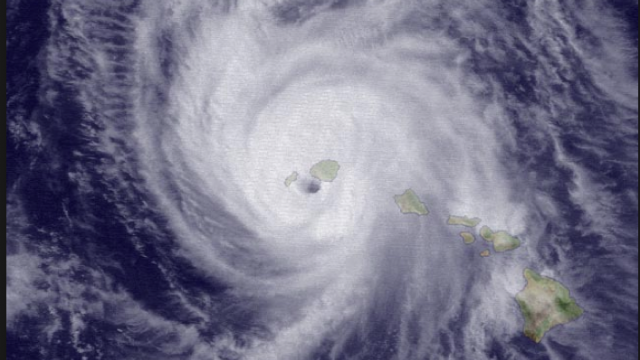Law would give Hawaii gov’t unprecedented emergency powers

EMERGENCY: The governor and mayors would be granted emergency powers in times of crisis, such as the time Hurricane Iniki devastated the island of Kauai on Sept. 11, 1992.
By Malia Zimmerman | Watchdog.org
HONOLULU — Hawaii’s governor and four county mayors may be granted unprecedented emergency powers during a crisis, such as a natural disaster or terrorist attack.
The bill, HB 849, is designed to bring Hawaii’s emergency management plan to federal standards. It renames the state civil defense agency the “Hawaii Emergency Management Agency” and houses it under the state Department of Defense.
The bill also adds to government bureaucracy, creating a state emergency management director position and a council on emergency management to advise the governor. Mayors will be granted the same power as the governor in declaring an “emergency period.”
Some language in the bill worries Senate Minority Leader Sam Slom, who is troubled about how it would affect privacy and property rights of Hawaii residents.
“My main concern is the bill gives expanded powers to the governor and mayors without checks and balances or oversight,” the Republican said. “The definition of emergency powers and where they come into play is vague and overly broad.”
In one section of the bill, the governor and the mayors of Kauai; Maui; Hawaii; and the city and county of Honolulu, encompassing Oahu, are authorized to use all services, materials and facilities owned by partnerships, corporations and small businesses, including media outlets and technology companies.
In another, the governor and mayors have the power to prevent “hoarding, waste, and destruction of supplies, materials, commodities, accommodations, facilities and services for equitable distribution.”
The governor also can assume operation of privately owned “critical infrastructure.”
“If the government declares you are in possession of harmful materials or are hoarding, or creating a dangerous situation, they could probably take whatever they want, including firearms, just like the government did in New Orleans after Hurricane Katrina hit in 2005,” Slom said.
William Anonsen, who sits on the Civil Defense Advisory Council, believes the pending legislation updates Hawaii’s 60-year-old emergency management law, developed after World War II to address threats of nuclear attack threats and civil unrest.
State Adjutant General Darryll Wong, who serves as the director of state civil defense, supports the legislation.
But Edward Teixeira, who served as former vice director of civil defense from October 1999 until October 2011, cautioned lawmakers about the current draft, calling the legislation a “rushed and desperate attempt to reform the state civil defense system.”
“The proposed bill falls short of making a real change to the state civil defense system, a change that requires a bold and justified transition from the federal civil defense laws of the 1950s to the 21st century and beyond,” Teixeira said.
Teixeira’s main concern isn’t so much about unprecedented powers, but more about how emergency management would be structured.
“We will continue to retain the state emergency management agency under the Department of Defense and the state adjutant general or Hawaii National Guard. This is an outmoded Cold War concept. The Hawaii state Legislature should take the initiative many other state legislative bodies have taken long ago by placing their emergency management agencies directly under their respective governors,” Teixeria said.
The bill passed both houses and is in conference committee. If the committee approves, both houses will need to approve a final draft by the end of the session May 1. Gov. Neil Abercrombie supports the bill.
Reach Malia Zimmerman at Malia@hawaiireporter.com







